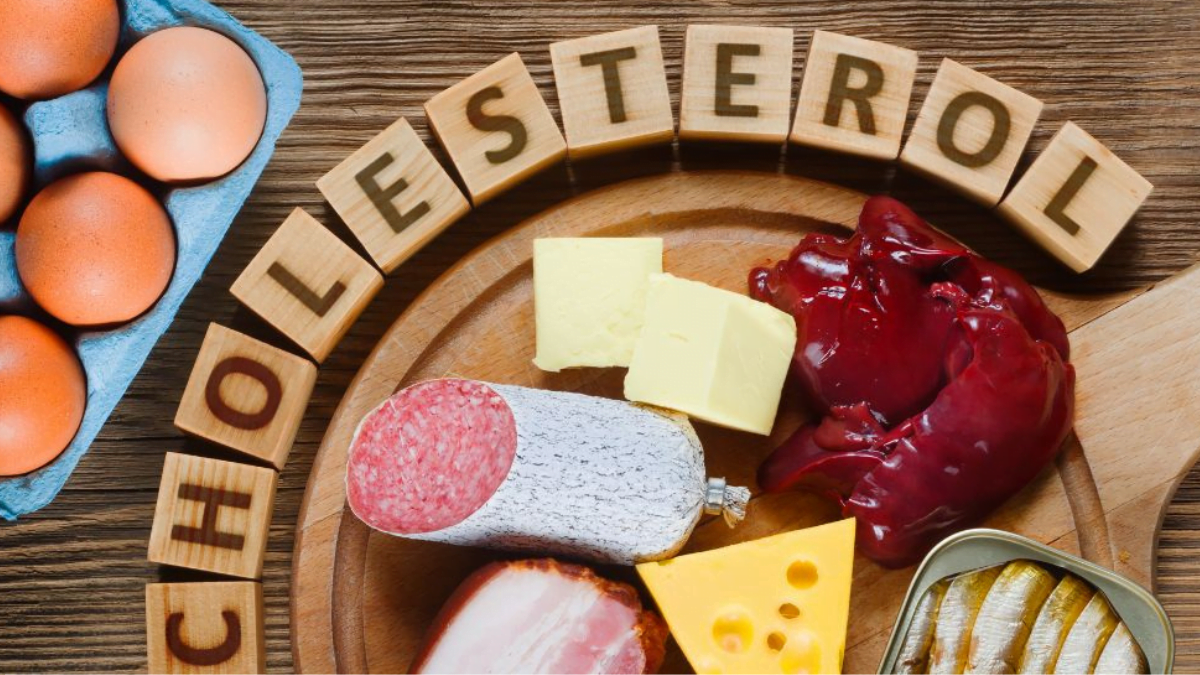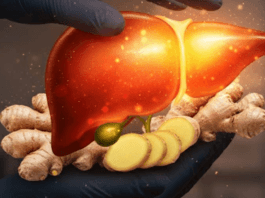Taking charge of your health is akin to navigating a labyrinth, with each decision and lifestyle choice acting as a piece in the intricate puzzle of well-being. Your heart, that tireless engine at the center of it all, deserves special attention. One vital aspect of heart health revolves around managing your intake of saturated fats, coupled with regular exercise and other wholesome habits. Let’s delve into why this matters and how you can chart a course towards a heart-healthy lifestyle.
Imagine your bloodstream as a bustling thoroughfare, teeming with tiny carriers known as lipoproteins ferrying essential cargo such as cholesterol, fats, and fat-soluble vitamins. Among these carriers, two key players emerge: low-density lipoprotein (LDL) and high-density lipoprotein (HDL). LDL, often dubbed the “villain” cholesterol, can wreak havoc when amassed excessively, leading to cholesterol deposits in blood vessel walls and heightening the risk of heart complications. Conversely, HDL, the “hero” cholesterol, acts as a guardian, whisking away cholesterol from vessel walls, and preserving artery health.
Enter your liver, the unsung hero in this narrative, diligently producing cholesterol as needed. Yet, external factors such as genetics, lifestyle, and diet can throw this delicate balance off-kilter. Here’s where your choices come into play.
Avoid foods that increase cholesterol level

Instead of shunning fats altogether, consider the quality of fats you consume. Monounsaturated fats, the superheroes of the fat realm, can wield considerable influence over your cholesterol levels. Take cues from the Mediterranean diet, abundant in olive oil, nuts, avocados, and olives, showcasing the benefits of these wholesome fats. Whether drizzling olive oil over a salad or indulging in a handful of nuts, relish in the heart-friendly goodness.
But let’s not overlook polyunsaturated fats, the unsung heroes in your dietary arsenal. Research underscores their efficacy in lowering LDL cholesterol and staving off heart disease, diabetes, and metabolic syndrome. Omega-3 fatty acids, the stars of this category, abound in fatty fish like salmon and mackerel, offering a delectable and heart-healthy addition to your meals. And if seafood isn’t your forte, fret not; fish oil supplements stand ready to bridge the nutritional gap.
Now, onto the adversaries: trans fats. These stealthy culprits birthed from hydrogenation, can wreak havoc on your cholesterol levels and overall heart health. Concealed within processed foods like margarine and baked goods, trans fats warrant vigilance when perusing food labels.
Yet a heart-healthy diet extends beyond fats; it’s also about fiber. Soluble fiber, abundant in plants and whole grains, emerges as a formidable ally in your quest for superior heart health. Prioritize whole grains like oat cereals, beans, Brussels sprouts, fruits, peas, and flaxseeds to lower LDL cholesterol and fortify your cardiovascular defenses.
And let’s not overlook the cornerstone of heart health: exercise. Regular physical activity not only enhances fitness levels and combats obesity but also regulates cholesterol levels. Exercise stands as a stalwart defender, reducing harmful LDL cholesterol while elevating beneficial HDL.
In summation, curbing saturated fats in your diet, coupled with embracing monounsaturated and polyunsaturated fats, sidestepping trans fats, incorporating fiber-rich foods, and committing to regular exercise, paves the path to a heart-healthy existence. So, whether you’re savoring a meal or donning your workout gear, remember: that each choice is a stride towards nurturing your heart and safeguarding your longevity.
Taking care of your heart isn’t rocket science, but it does require a bit of know-how and a willingness to make some lifestyle tweaks. Whether you’re aiming to keep your cholesterol levels in check or simply want to prioritize your heart health, the American Heart Association (AHA) has some sound advice to guide you on your journey.
First up, let’s talk about exercise. According to the AHA, carving out just 150 minutes per week for moderate aerobic exercise can work wonders for your cholesterol levels. That’s like fitting in a brisk walk or a leisurely bike ride most days of the week. And if you’re up for it, throwing in some strength training alongside your aerobic workouts can amplify the benefits, giving your heart an extra boost.
Next on the agenda: maintaining a healthy weight. Carrying excess pounds not only puts a strain on your joints but also elevates your risk of high cholesterol. Shedding those extra pounds, if you have them, can do wonders for your cholesterol profile, lowering the harmful LDL while boosting the helpful HDL. Consider teaming up with your doctor to craft a sensible eating plan and a sustainable approach to weight management that fits your lifestyle.
Now, let’s tackle the smoking habit. Lighting up not only wreaks havoc on your lungs but also does a number on your cholesterol levels. Smoking can send your LDL soaring while simultaneously driving down your HDL, a double whammy for your heart health. Quitting smoking might seem daunting, but with the right support from your doctor, you can kick the habit and reverse some of the damage done to your cholesterol levels.
Moving on to everyone’s favorite topic: alcohol. While the debate on alcohol’s role in heart health rages on, it’s safe to say that moderation is key. Some studies suggest that moderate alcohol consumption may boost your HDL and reduce the risk of heart disease. However, the AHA advises against drinking alcohol specifically to lower cholesterol or improve heart health. So, if you choose to indulge, stick to the recommended limits of two drinks per day for males and one drink per day for females, and always be mindful of your overall health.
Now, let’s delve into some supplements that might lend a hand in managing your cholesterol levels. Plant sterols and stanols, which mimic cholesterol in the body, have shown promise in reducing LDL levels when taken in supplement form. Similarly, fish oil supplements rich in omega-3 fatty acids may offer some benefits for heart health, though some varieties may paradoxically increase LDL. Psyllium, a form of soluble fiber available as a supplement, could also help in lowering cholesterol levels. While research into the efficacy of coenzyme Q10 in lowering cholesterol is ongoing, it’s always wise to consult with a healthcare professional before diving into any new supplement regimen.
In a nutshell, taking proactive steps to manage your cholesterol levels doesn’t have to be daunting. By incorporating regular exercise, maintaining a healthy weight, kicking unhealthy habits like smoking, drinking alcohol in moderation, and considering targeted supplements, you can give your heart the TLC it deserves. Remember, small changes add up over time, so start wherever you are and take it one step at a time on your journey to better heart health.
Taking charge of your cholesterol levels doesn’t have to involve drastic measures or major sacrifices. With a few simple tweaks to your lifestyle and diet, you can make a big impact on your heart health. Let’s explore some practical steps you can take to lower your cholesterol and improve your overall well-being.
First things first: let’s talk about alcohol and smoking. Limiting alcohol intake, if you drink, and quitting smoking, if you smoke, are two powerful ways to protect your heart. Both habits can wreak havoc on your cholesterol levels and increase your risk of heart disease. So, if you’re looking to give your heart a break, cutting back on alcohol and ditching cigarettes are two smart moves.
Next up, let’s get moving! Regular exercise is not only great for your waistline but also for your cholesterol levels. Aim for at least 150 minutes of moderate aerobic exercise per week, whether it’s a brisk walk, a bike ride, or a dance class. And don’t forget to incorporate strength training into your routine for even more heart-healthy benefits.
Now, let’s talk about what’s on your plate. Eating a balanced diet is key to managing your cholesterol levels and keeping your heart happy. Luckily, there are plenty of delicious and nutritious foods that can help lower LDL, the harmful cholesterol, and boost HDL, the good cholesterol.

Here are some cholesterol-friendly foods to add to your grocery list:
- Oats: Start your day with a bowl of oatmeal or cold oat-based cereal for a hearty dose of soluble fiber.
- Barley and other whole grains: Incorporate barley and whole grains into your meals to reap the heart-healthy benefits of soluble fiber.
- Beans: Load up on beans, such as navy beans, lentils, and black-eyed peas, for a hefty dose of soluble fiber and a feeling of fullness that lasts.
- Eggplant and okra: These low-calorie veggies are packed with soluble fiber and make tasty additions to soups, stews, and stir-fries.
- Nuts: Snack on almonds, walnuts, and peanuts for a satisfying crunch and a boost of heart-healthy fats.
- Vegetable oils: Swap out butter and lard for liquid vegetable oils like canola and sunflower to lower LDL.
- Fruits: Enjoy apples, grapes, strawberries, and citrus fruits for their pectin content, which helps lower LDL.
- Foods fortified with sterols and stanols: Look for foods fortified with plant sterols and stanols, such as margarine and orange juice, to help block cholesterol absorption.
- Soy: Incorporate soybeans, tofu, and soy milk into your diet for a plant-based source of protein that can lower LDL.
- Fatty fish: Add salmon, mackerel, and trout to your weekly menu for a dose of omega-3 fats, which can lower LDL and triglycerides.
- Fiber supplements: Consider taking a fiber supplement, such as psyllium, to boost your soluble fiber intake and support healthy cholesterol levels.
By making these simple changes to your lifestyle and diet, you can lower your cholesterol levels and improve your heart health in no time. And remember, always consult with a healthcare professional before starting or changing any supplement regimen to ensure it’s right for you. Here’s to a healthier heart and a happier you!
Discover more from currentnewschannel.com
Subscribe to get the latest posts sent to your email.













